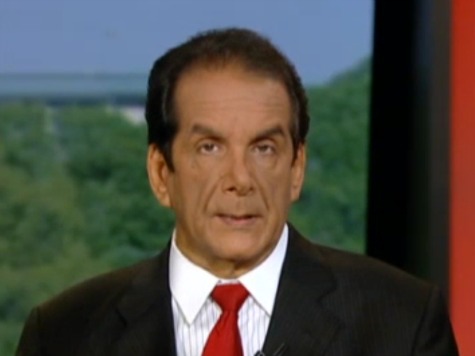Asked in a recent interview to describe his belief in God, Pulitzer Prize-winning columnist Charles Krauthammer replied that he doesn’t believe in God, but he still fears Him.
Krauthammer, who is Jewish, referenced Einstein and Newton in his response, but there were no references to the Bible as he answered:
There was once a philosopher who said, “I don’t believe in God, but I fear him greatly.” That’s about where I am. There’s another, a Jewish poet, a Yiddishist, who once said, “Great and magnificent is the God of my belief.”
I’ve had a fairly difficult and complicated notion of the deity. If I tried to explain it I would simply say — and this is by no means associating myself with the greatness of the man — but I would associate myself with Einstein’s conception of God, which was a recognition and an awe before the mystery of the order and beauty of the universe, which would imply that there is something very mysterious and very awesome — awe-inspiring — about the universe.
I feel the way, I think what Newton once said: “I feel like a snail on the side of a great ocean, and the idea that I could understand a notion like God, or humans can, is, as it were, expecting a snail to understand the motion of the tides through calculus and physics. That’s not possible.”
So I see the same kind of intellectual gap, being the capacity of humans to understand in any deep sense about theology or God, as for a snail to figure out how the tides work. That sort of summarizes my view. Einstein said, “God does not play dice with the universe.” He said that in rejecting quantum mechanics ’cause it involves probabilities, which he doesn’t think that God deals in those because of the elegance and beauty of things. Einstein understood his equations. There’s no probability in E=MC2. I mean, that’s the entire modern physics, in, what is it? Five letters.

COMMENTS
Please let us know if you're having issues with commenting.